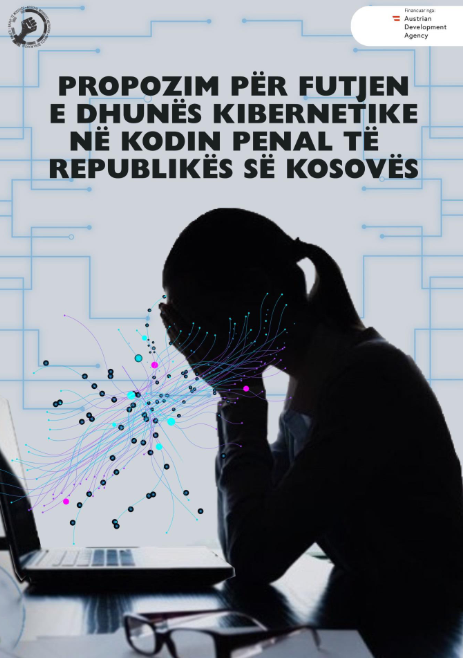With the continuous growth of internet use and ICT, cyber violence has emerged as a serious threat, particularly against women and girls. This form of violence includes harassment, threats, defamation, the non-consensual sharing of intimate materials, and other types of abuse that occur via online platforms. Currently, Kosovo’s penal legislation does not specifically address cyber violence, leaving a legal gap in the protection of victims of this form of violence.
In May 2024, the European Union voted on the Directive on Combating Violence Against Women and Domestic Violence, marking a decisive step towards ensuring the safety and protection of women and girls in all areas of life, including online. This policy brief aims to inform the process of amending Kosovo’s Penal Code by emphasising the need for harmonised definitions and penalties for cyber violence.
Based on the Directive and the existing legal framework, Kosovo must incorporate the following acts and penalties into its Penal Code, drawing on international experiences. The Kosovo Women’s Network proposes that this article be included in Chapter XXI of the Penal Code, adding a new Article 249 on Gender-Based Cyber Violence.
Key Proposals:
Harassment and Threats: Define and criminalise online harassment and threats, particularly those targeted at individuals based on gender. This would include persistent and unwanted contact, derogatory comments, and threats of violence or harm made via digital platforms.
Non-Consensual Sharing of Intimate Materials: Introduce specific penalties for the non-consensual distribution of intimate images or videos, commonly known as “revenge porn.” This act should be recognised as a serious violation of privacy and personal dignity, warranting strict legal consequences.
Defamation and Hate Speech: Expand the existing defamation laws to include digital spaces, ensuring that victims of online defamation have recourse to justice. Additionally, hate speech, particularly gender-based hate speech, should be clearly defined and penalised to protect individuals from harmful and discriminatory content.
Cyberstalking: Introduce a distinct offence for cyberstalking, characterised by the use of digital technologies to repeatedly monitor, follow, or engage with an individual in a way that causes fear or distress.
Legal Protections for Victims: Ensure that the legal framework provides adequate protection measures for victims of cyber violence, including restraining orders, the right to anonymity during legal proceedings, and access to psychological support services.
Training and Awareness: Mandate training for law enforcement and judicial officers on identifying and handling cases of cyber violence. Public awareness campaigns should also be launched to educate citizens about the dangers of cyber violence and the legal protections available.
By incorporating these provisions, Kosovo can take significant steps towards closing the legal gaps in the protection of women and girls from cyber violence. The integration of gender-based cyber violence into the Penal Code is not only a necessary legal reform but also a commitment to safeguarding human rights in the digital age.

